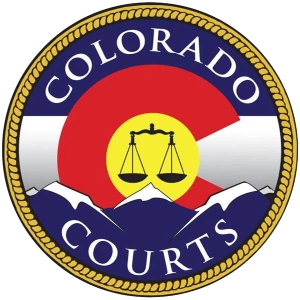Colorado Courts
JEFFREY WERTZ

State Courts
Trial Attorney Jeff Wertz has been licensed to practice in all state courts within the State of Colorado since 1997. The bulk of his trial experience since the late 1990’s has been in Colorado District and County Courts.
Court of Appeals
The Colorado Court of Appeals is the state’s intermediate appellate court. As of July 1, 2008, the Court consists of 22 judges who are retained by the public to serve eight-year terms. The Court sits in three-member divisions to decide cases. The Chief Judge, appointed by the Chief Justice of the Supreme Court, assigns judges to the divisions and rotates their assignments. The mission of the Court of Appeals is to provide the citizens of Colorado with clear, impartial, and timely resolutions of appealed orders and judgments as provided by law. Oral Arguments are set in the Ralph Carr Building in Denver unless an order for remote oral arguments has been issued in the case.
Established under Section 1 of Article VI of the Colorado Constitution and Section 13-4-101, et seq., C.R.S. (Colorado Revised Statutes), the Court of Appeals has initial jurisdiction, with exceptions, over appeals from the Colorado District Courts, Denver Probate Court, and Denver Juvenile Court. In addition, the Court of Appeals has specific appellate jurisdiction over decisions originating from a number of state administrative boards and agencies, including the Industrial Claim Appeals Office. Reviews of the Court of Appeals’ decisions are directed to the Colorado Supreme Court.
Supreme Court
The Supreme Court is composed of seven justices who serve ten-year terms. The Chief Justice is selected from the membership of the body and serves at the pleasure of a majority of the justices. The Chief Justice also serves as the executive head of the Colorado Judicial System and is the ex-officio chair of the Supreme Court Nominating Commission. The Chief Justice appoints the Chief Judge of the Court of Appeals and the Chief Judge of each of the state’s 22 judicial districts and is vested with the authority to assign judges (active or retired) to perform judicial duties.
Requests to review decisions of the Colorado Court of Appeals constitute a majority of the Supreme Court’s filings. The Supreme Court also has direct appellate jurisdiction over cases in which a statute has been held to be unconstitutional, cases involving decisions of the Public Utilities Commission, writs of habeas corpus, cases involving adjudication of water rights, summary proceedings initiated under the Election Code, and prosecutorial appeals concerning search and seizure questions in pending criminal proceedings. All of these appeals are filed directly with the Supreme Court, and, in these cases bypass the Court of Appeals. The Supreme Court also has exclusive jurisdiction to promulgate rules governing practice and procedure in civil and criminal actions.

